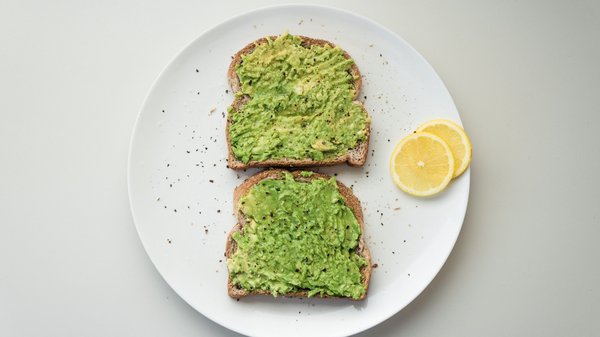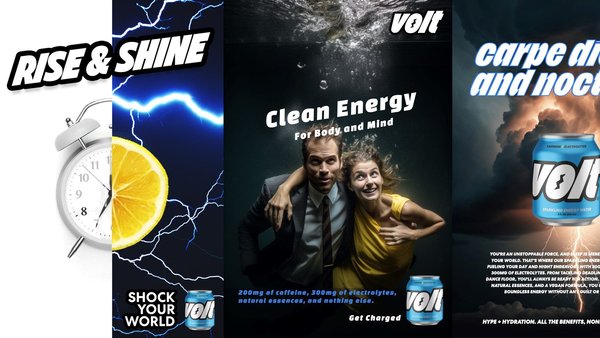Most Contagious New York 2020 /
A rundown of Contagious' January event covering the most vital marketing trends, campaigns and insights of the past year
Contagious Team
/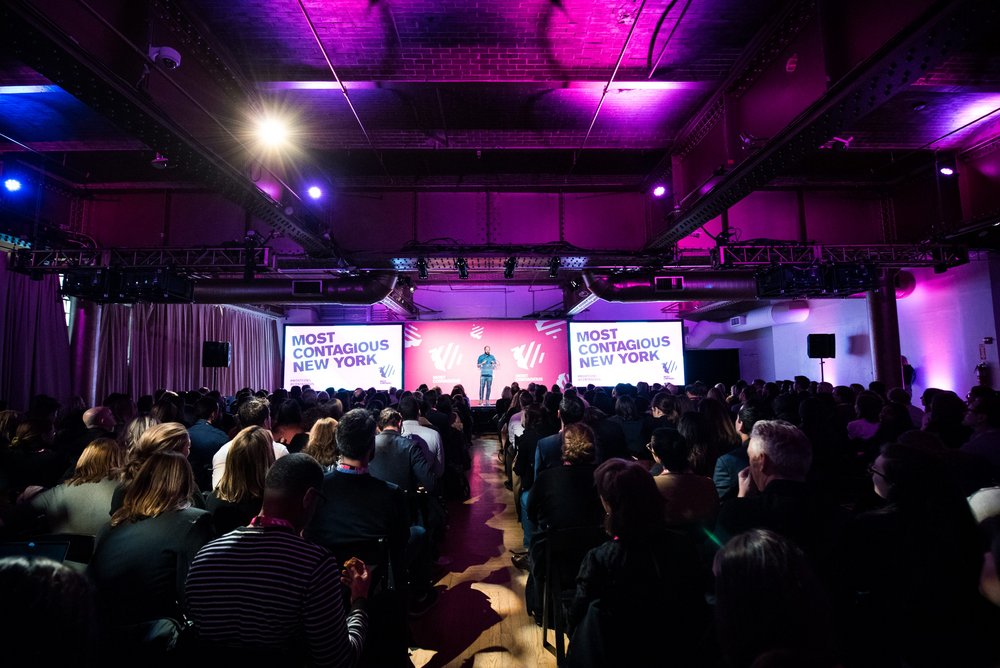
If you’d ever doubted Bill Bernbach’s claim that creativity is a brand’s last legal unfair advantage over competitors, Most Contagious New York would have restored your faith.
Setting the scene for the year ahead, the event, held in Midtown’s historic Altman Building, delivered an optimistic and energetic state-of-the-nation for the advertising and marketing industry.
Kicking off with a talk on the Consumption Crisis, Contagious’ lead strategist Chris Barth dived straight into the most pressing issue of the day: the conundrum facing brands and marketers alike. How can we reconcile our role in encouraging consumption with the need to build a more sustainable future? The solutions, argued Barth, are already being implemented by brands actively exploring ways to help consumers develop more sustainable consumption habits. From fashion re-sale websites to subscription services for cars, from innovative startups to determined legacy players, every category has its share of trailblazing examples to learn from. And the appetite for change is evident among consumers. Not only have products with a sustainability claim on-pack seen a 29% rise in sales between 2013 and 18, but products marketed as sustainable have grown 5.6 times faster over the same time period. And it’s the brands getting on the front foot – now – with sustainability that will shape the future.
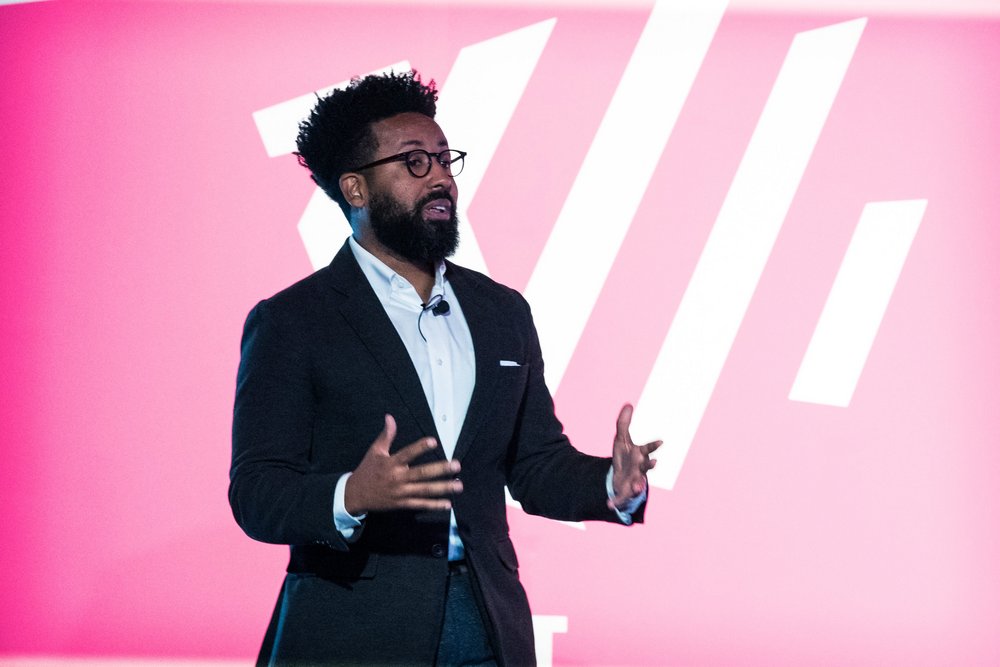
Another thorny issue lay at the heart of the second talk. Kent Johnson, co-founder of travel company Black & Abroad, and Ian Mackenzie, CCO of FCB/SIX took to the stage to explain how they built a tourism campaign around the racist slur, ‘Go back to Africa’. A process of iteration built out the bare bones of an idea into a provocative campaign, a community of like-minded travellers and a growing collection of more diverse and representative travel imagery that is helping to change the narrative around tourism. Not bad for an idea so sensitive that a crisis management expert advised: ‘under no circumstances should you run this campaign.’
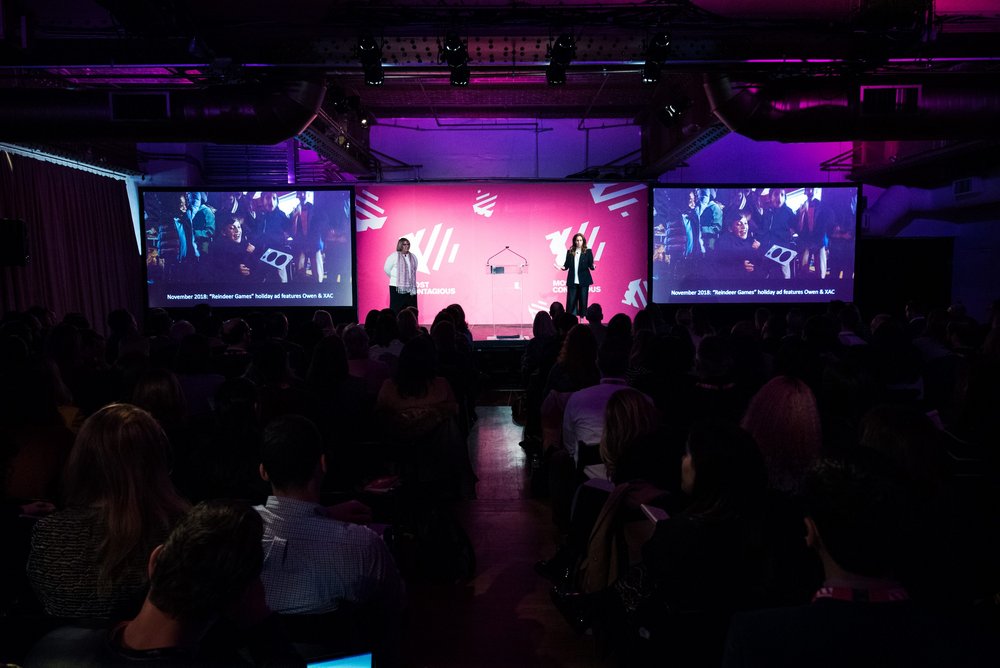
The next presentation was altogether more touchy-feely, but no less impactful an exploration of access and representation. In this session, the back-story to Microsoft’s Cannes Lions Grand Prix-winning Changing the Game was related by the brilliantly no-BS Kathleen Hall, VP of brand, advertising and research, and her agency accomplice, McCann New York’s EVP and ECD Shayne Millington. What came through loud and clear in this session was the role technology can play in creating equality of experience for everyone, whatever their physical attributes – so long as the development process itself is as inclusive as the end result. In creating the Microsoft Adaptive Controller, ‘Nothing about us without us’ was the principle guiding the team, an approach that carried through to the Super Bowl spot that melted hearts and reminded the world that gaming – and so much more besides – should be fun for everyone.
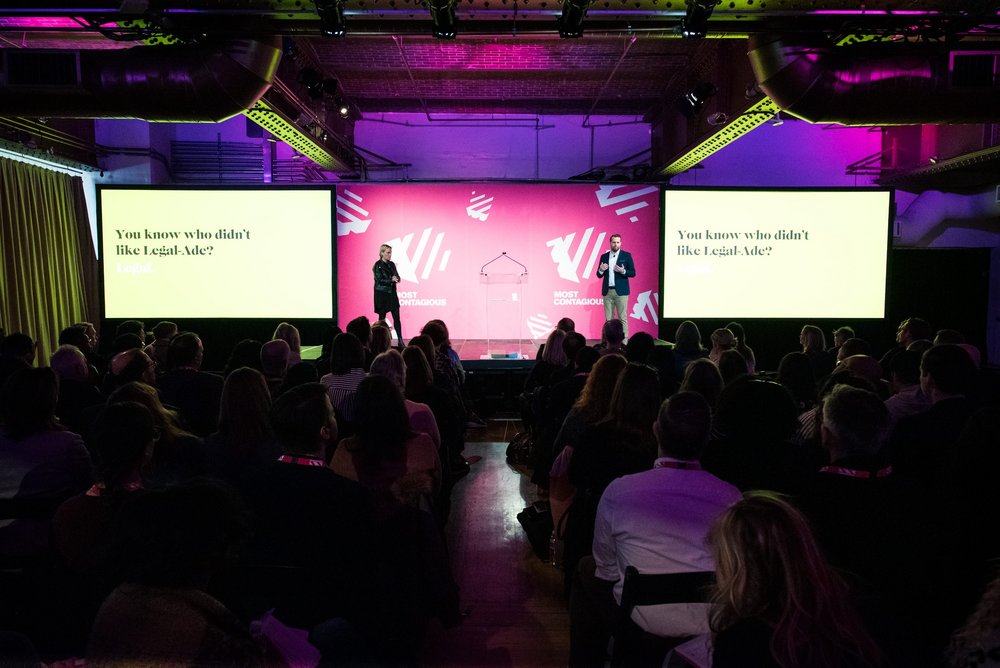
Cause marketing may not be everyone’s cup of tea, but Country Time Lemonade came to Most Contagious to explain how a summer campaign designed to get people looking for the brand in supermarket aisles helped the brand find its identity. ‘We didn’t really know who we were as a brand,’ explained Eric Mills, associate director of marketing at The Kraft Heinz Company. That changed when Country Time funded a Legal-Ade service for kids whose unlicensed lemonade stands were being shut down by the cops. The key takeaway from this campaign for Jordan Doucette, CCO at Leo Burnett? ‘Having a purpose doesn’t have to be so purpose-y.’
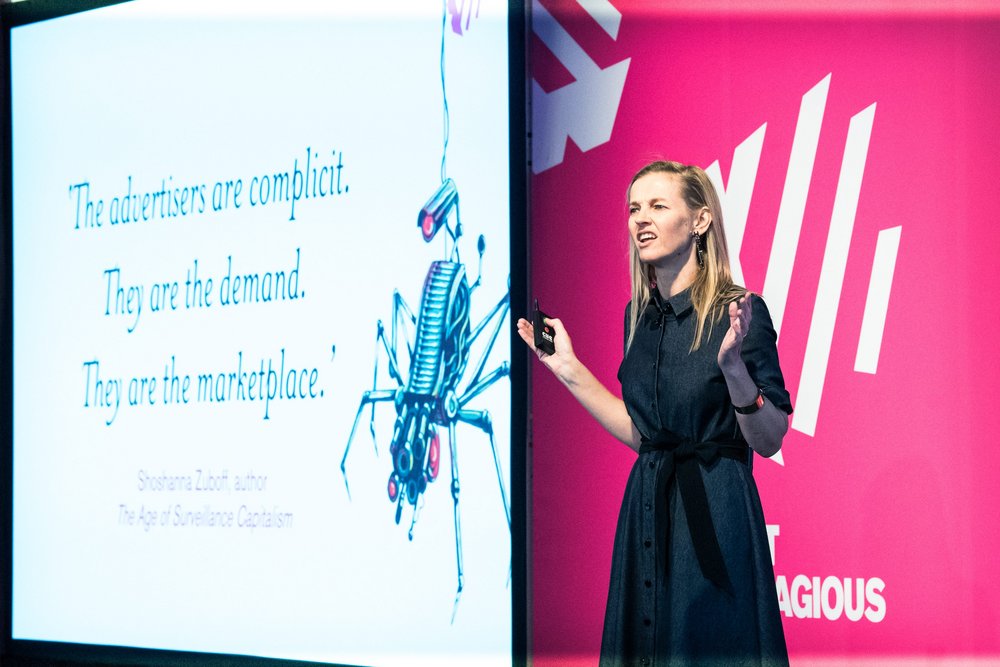
On a less sunny note, Contagious editor at large Katrina Stirton Dodd delved into the murkier corners of advertising’s twisted relationship with tech. The industry’s passion for quick-fix performance marketing is financing the mind-bending profits of Google, Facebook et al, but our shallow understanding of its impact and effectiveness may be storing up problems for the long-term health of our brands. We need to accept that there’s more to ‘digital’ than just performance and stop trying use it as a blunt instrument. The creativity and impact we routinely expect in more traditional media is missing in action when it comes to most of the advertising we see online. ‘We need to prioritise value creation over cost-cutting’ said Stirton Dodd, or we risk selling our industry, our brands and the potential of digital short.
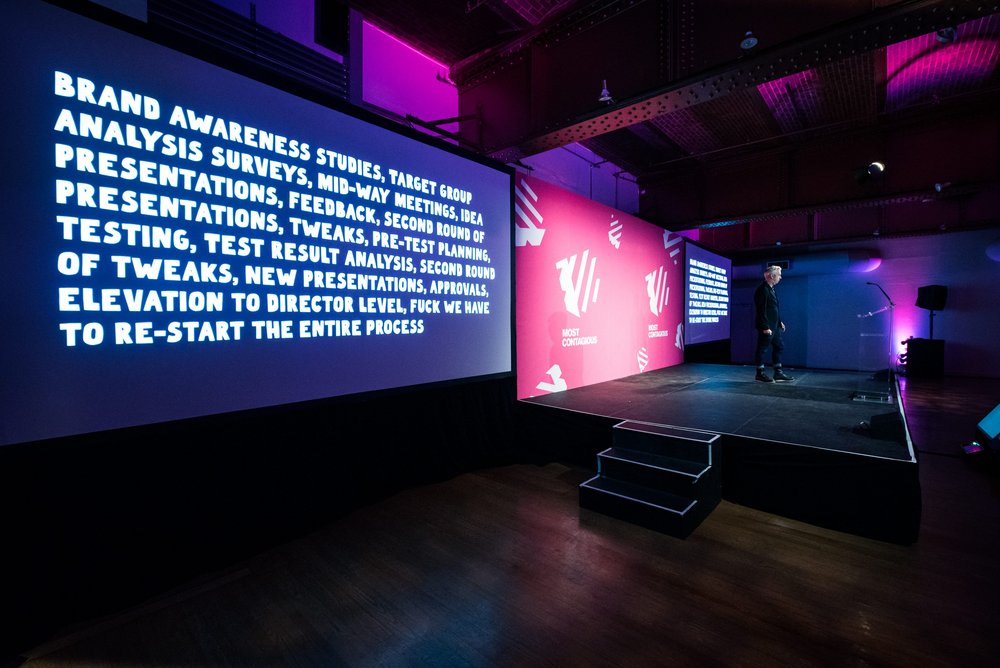
Calling for a very different kind of revolution, John Schoolcraft, global CCO of Oatly, used his session to describe how his company scrapped the marketing department in favour of embedding creatives at the heart of the business. The silo-free model advocated by Schoolcraft has been an exercise in empowerment, freeing the team from an over-abundance of ‘process’ and allowing everyone to focus on turning ideas into action. It’s also working. Oatly cannot keep pace with the demand for their product – and that will likely continue to be the case in the foreseeable future and beyond.

While demand for milk substitutes is growing, the demand for high quality news coverage has been tanking at a time when ‘fake news’ is rife and hyperbole has taken the place of hard evidence. Against this backdrop, the New York Times and its agency Droga5, NY have been working hard to remind the public that reliable information is a valuable resource. Amy Weisenbach, SVP of marketing and media strategy at the NYT, and Droga5 CD Toby Treyer-Evans, took to the stage to explain how their campaign, The Truth is Worth It, revealed the long hours of investigation and research that lie behind the headlines. The pair recounted how the journalists’ initial wariness has been overcome by the quality of the idea and its painstaking execution – to the extent that they now share ideas with the agency team. Crucially, the campaign has also been a commercial success: last year the company set a record for digital subscription growth, adding over a million net new digital subscribers, taking its total number of subscribers to more than 5.2 million across print and digital.
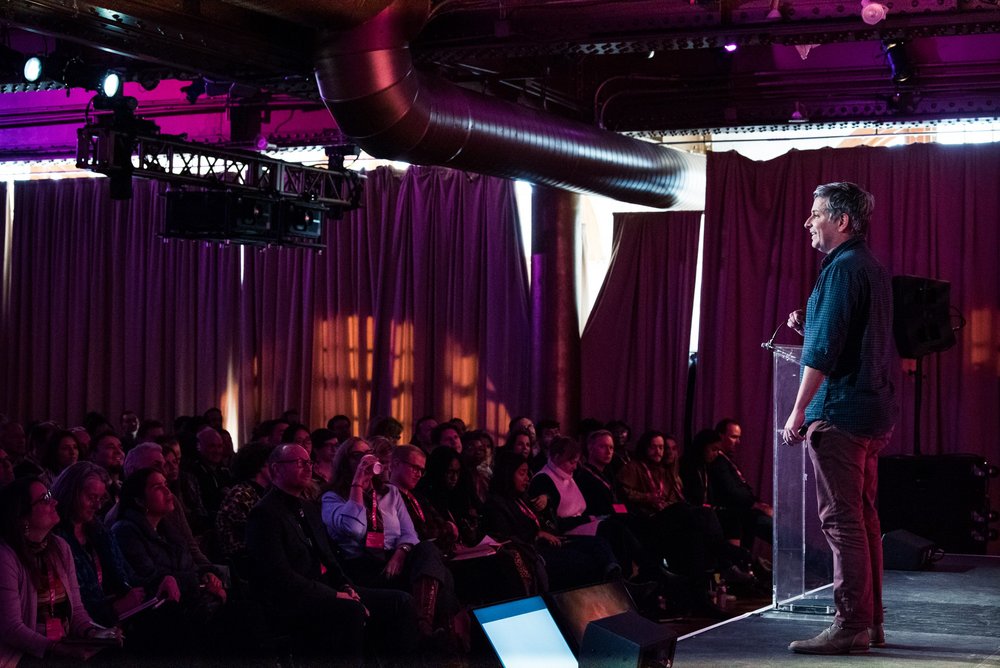
The final speaker of the morning was Burger King CMO Fernando Machado, a renowned marketing firebrand whose dedication to feeling-the-fear-and-doing-it-anyway has seen the brand’s Cannes Lions award tally trend relentlessly upward over the last few years. Machado’s key theme was the influence of technology across the fast food sector, and Burger King’s determination to explore new ways of manifesting its ‘flame-grilled’ USP – especially to a younger audience that hasn’t fully connected with that idea yet. Another important takeaway: it’s important to get comfortable with risk, because if an idea is truly new, it comes with a degree of uncertainty and risk attached. If your legal team isn’t effectively considered a part of the creative team, are you really pushing hard enough?
Above all, the message that came through loud and clear across an entire morning of talks was positive: as an industry we have the power to change a lot. It may not make for an easy life, but fortune favours the brave.
Want more of the same? /
We don’t just write about best-in-class campaigns, interviews and trends. Our Members also receive access to briefings, online training, webinars, live events and much more.





